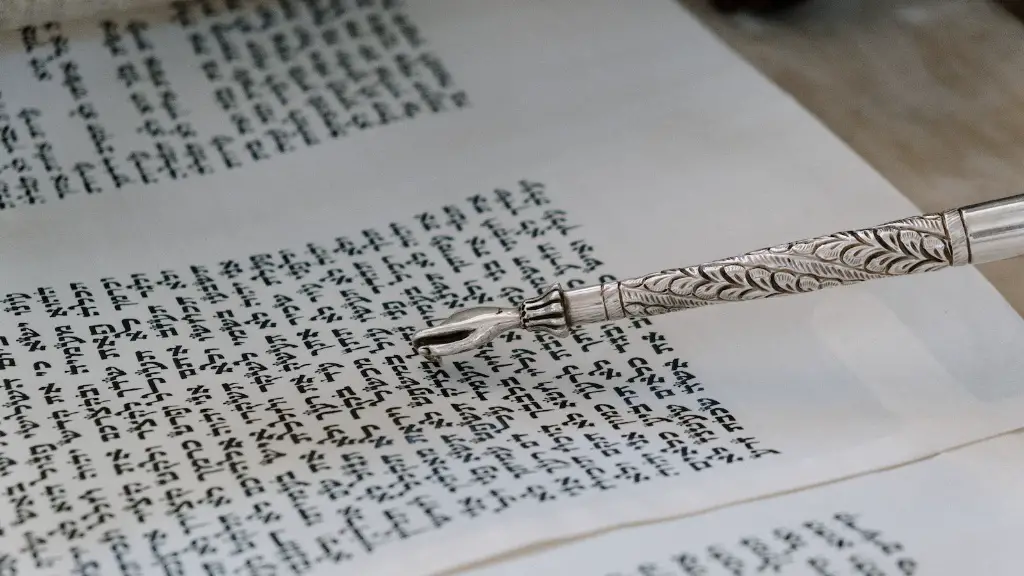What Inspired Langston Hughes Poetry?
Langston Hughes was an American poet and a Harlem Renaissance writer, who is best known for his powerful and emotionally charged poetry. His writing was strongly influenced by the blues and was in many ways an homage to the African-American heritage and experience. As a major voice of the Harlem Renaissance, Hughes wrote numerous poems, stories, stories and plays which are celebrated today for their lyrical and honest representation of the African-American experience. But what inspired Hughes to write his celebrated works and explore such a wide range of topics?
It is apparent that Hughes was heavily influenced by his upbringing in the predominately African-American areas of Lawrence and Topeka, Kansas. These places strongly informed his writings and his beliefs about black culture and identity. His early works dealt with racial segregation, discrimination and injustice. His poetry was often inspired by his own experiences of poverty and suffering, from Jim Crow laws to racist attacks. Hughes was also deeply influenced by his mentors, writers such as the celebrated James Weldon Johnson and the poet Robert Frost.
It is also clear that Hughes was heavily inspired by the Harlem Renaissance movement. This movement was a cultural flowering which started in the 1920s and was driven by a new wave of African-American writers. Hughes was at the apex of the movement, writing pieces which celebrated black culture and pushed for the recognition of African-American history and achievement. Famous works such as ‘The Negro Artist and the Racial Mountain’ and his famed poem ‘Let America Be America Again’ embodied the powerful messages of social change that Hughes and others were championing. This inspired Hughes to continue writing and to express his beliefs with powerful and sensual images.
It is also believed that Langston Hughes was heavily inspired by music, and especially by jazz. Jazz was a musical movement in the 20th century which was deeply rooted in African-American culture and experience. Hughes was fascinated by the improvisation and creative expression of jazz music and was able to draw comparisons between the social and economic plight of African-Americans, and their daring and inventive musical performance styles. Hughes was also heavily influenced by the blues, which was a form of music brought over from Africa by slaves and developed into something unique. This connection to African-American heritage inspired Hughes to incorporate spirituals and jazz into his writing to create works that capture the spirit of the African-American experience.
Finally, Hughes was heavily inspired by the African-American oral tradition. Relying heavily on shared stories, one-liners and storytelling, these oral traditions were the perfect forum for Hughes to pass on his books and ideas. This was especially evident in his collection of “belles-lettres” poetry, which was full of short, simple poems about love, death and racism. The innovative use of language and imagery in his writings, as well as the sharp wit of his one-liners, still stand as testament to Hughes’ skill as a storyteller and his ability to capture the African-American spirit.
Political Themes
Hughes’ works often incorporated political themes such as racial inequality, immigration, freedom and justice. His famous poem, ‘Let America Be America Again’ is a poignant call for racial and social justice. Hughes appealed to a union of cultures that felt oppressed and dispossessed by emphasizing the idea of America being a united country which could move beyond racism and injustice. This poem is an important reminder of the power of literature in addressing the issues of social injustice.
More specifically, Langston Hughes was one of the first African-American writers to address the idea of the ‘American Dream’ in his poems. In works such as ‘Days of the Dreamer’ and ‘Dream Variations’, Hughes discussed the great strengths of dreamers, and what it means to have dreams. He believed that despite the struggles and oppressions they faced, dreamers can still find success and hope. This passionate belief in power of hope and dreams was a recurring message in his works.
Hughes was also hugely inspired by African-American history, particularly stories of revolutionary activists like Nat Turner. His well-known poem, ‘Freedom’s Plow’ is a powerful tribute to African-American history and to the idea of liberation and justice. Hughes was not afraid to dive into difficult topics, often finding ways to encapsulate the struggles and achievements of African-Americans in literature.
Langston Hughes was also inspired by his contemporaries and his life in Harlem, New York. Writing during the Harlem Renaissance, he was part of a wave of African-American literary ambition. It was a time in which African-American culture was celebrated and explored. Hughes paid tribute to his peers in his various works, painting a vivid picture of the vibrant culture and energy of the area.
Religious Influences
Religion and spirituality were also huge aspects which informed Langston Hughes’ poetry. His study of the Bible as a child had a great impact on his writing and his expressiins of faith and belief. Hughes delved into questions about faith and morality, often finding inspiration in the stories of Jesus’s beatitudes and the poetry of the Psalms. His poems ‘Madam and the Minister’, ‘The Negro Speaks of Rivers’ and ‘The Weary Blues’ all reveal a deep-rooted spiritual quality to his works.
He also incorporated elements of voodoo and African-American spiritual and folklore into his works. He often celebrated these beliefs as powerful and meaningful aspects of African-American heritage. His poem, ‘The Spider and the Fly’, is a vivid and captivating exploration of folklore and the relationship between humanity and nature. This poem is a reminder that Hughes was a vivid and creative storyteller.
Hughes was also inspired by the idea of music as a form of religious expression. Music played an important role in African-American culture and religion, and Hughes was able to incorporate these themes into his works. He used spirituals and jazz as the foundation for his pieces, often unearthing the hidden stories of African-American culture in the process. He incorporated these stories with heartfelt commitment and poignancy, allowing the reader to gain a better understanding of his culture’s struggles and victories.
Hughes was heavily inspired by the idea of literature being a form of religious expression. He believed that literature could transport the reader, offering them a different view of the world. He often infused his work with a sense of spirituality, creating a powerful sense of depth and meaning. He was also inspired by his admiration for religious figures, such as Marcus Garvey, and often referenced him in his works.
Conclusion
Langston Hughes was a passionate and talented poet and writer whose works are still celebrated today. His works were heavily influenced by his upbringing, his mentors, the Harlem Renaissance, music and the African-American oral tradition. He was also inspired by political themes such as racial inequality and justice, the idea of the ‘American Dream’, African-American history and his peers. Finally, Hughes explored religious themes in his writing, with themes of faith, belief and music as religious expression being common motifs in his works. Through his words, Hughes created a powerful and enduring legacy which offers a unique insight into African-American heritage and experience.



